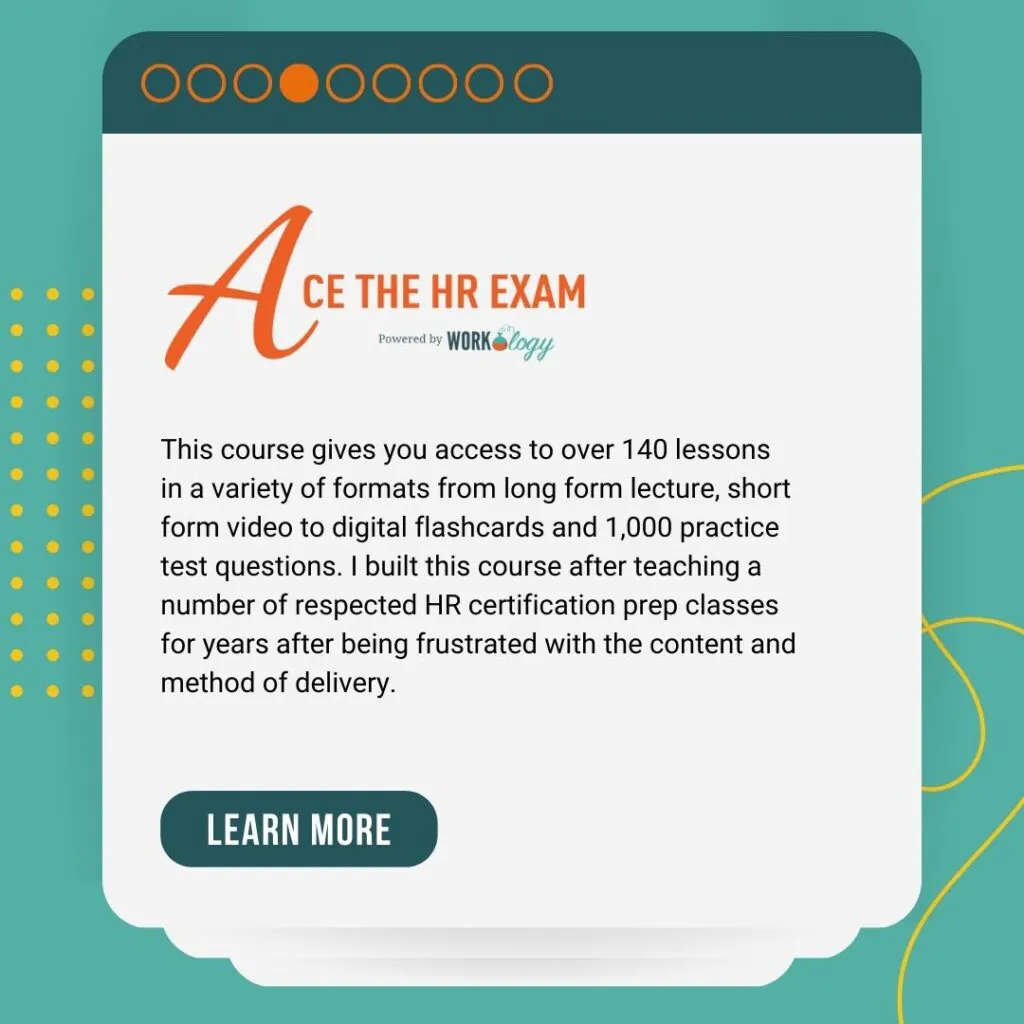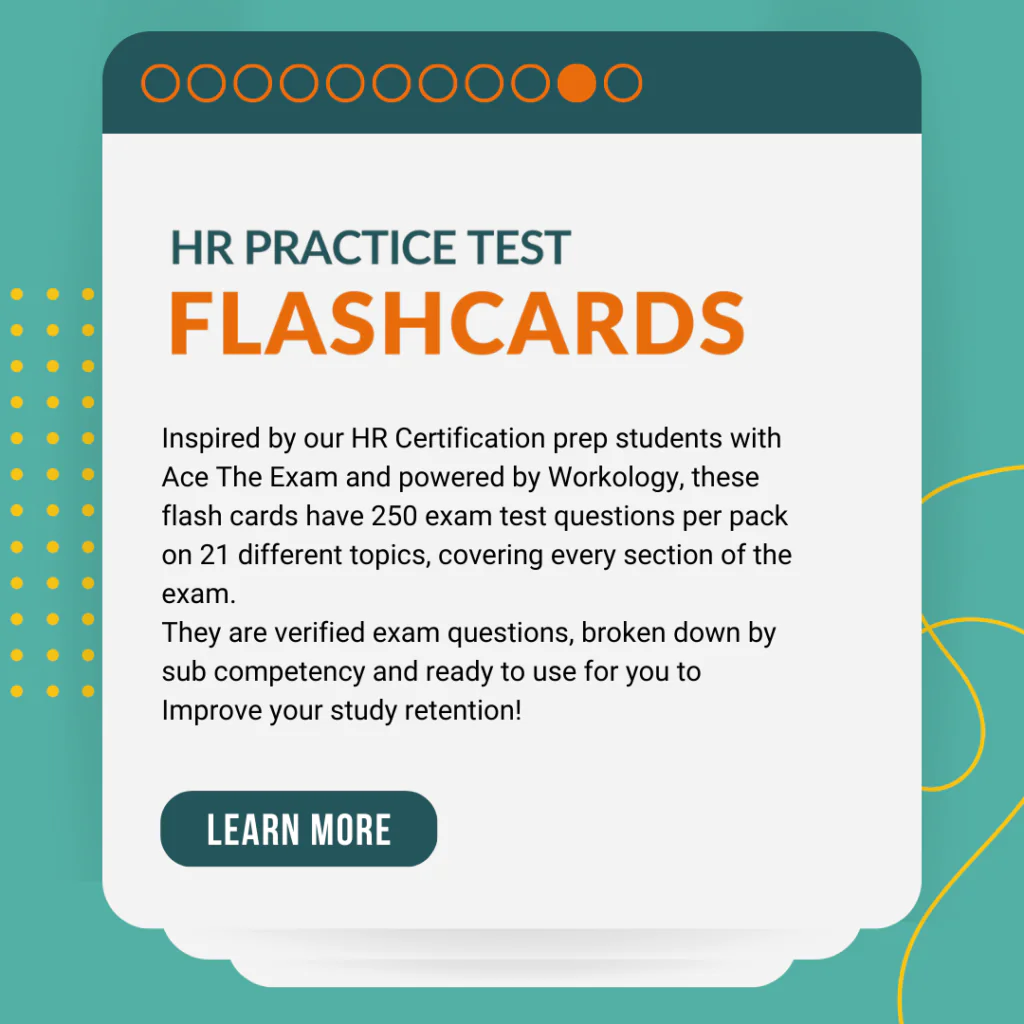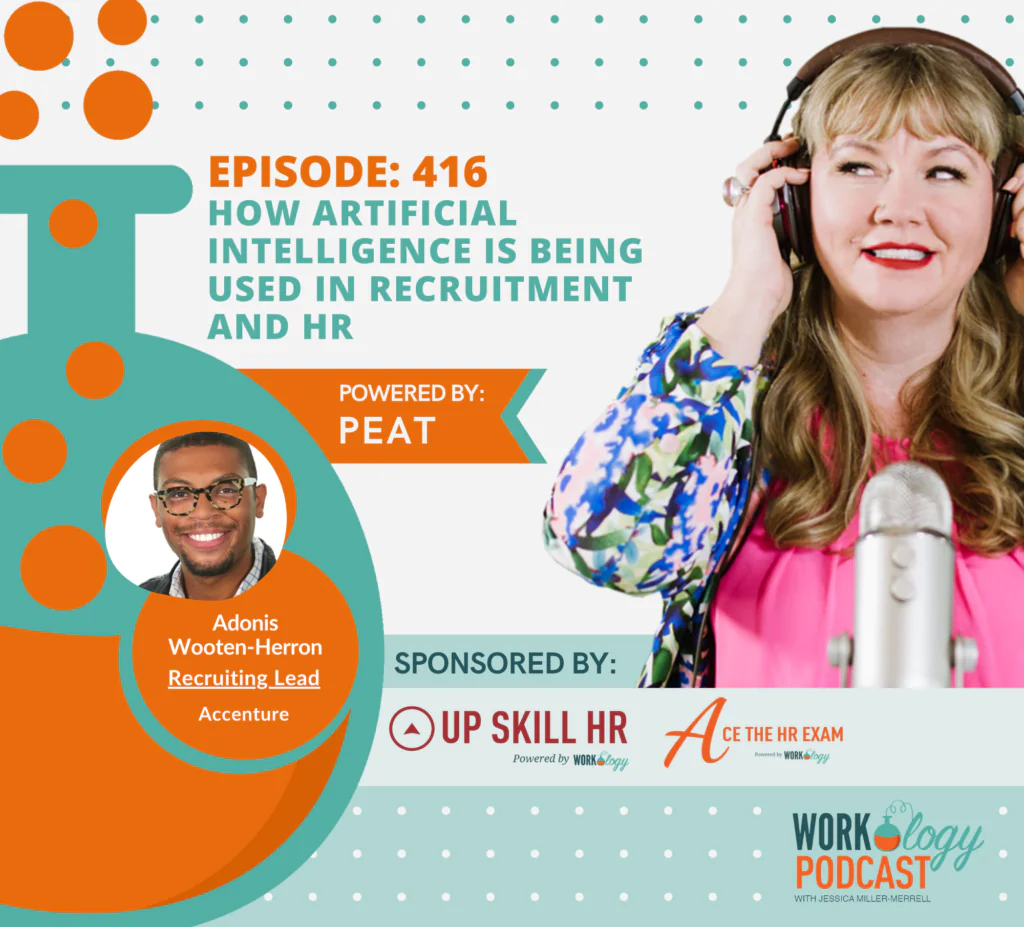If you’re a Human Resources professional seeking certification, there’s an important part of your journey that can’t be ignored: the HRCI Ethics Requirement. In 2023, to help leaders foster a positive work environment and handle ethics concerns effectively, HRCI made it mandatory for all its certifications to include one ethics course credit.
This is more than just another box to check on your path towards recertification. It serves as a crucial component in shaping HR practices with integrity at their core. By incorporating this requirement into their program, HRCI signals the importance they place on ethical decision-making skills among HR professionals.
You’ll learn how proper training prepares HR managers not only to recognize potential ethics violations but also take appropriate actions when faced with them. And remember – taking an active role in maintaining high ethical standards isn’t just about compliance; it’s also key for enhancing customer loyalty and employee retention within any organization.
Understanding the HRCI Ethics Requirement
Earning your HRCI ethics credit can be achieved through various avenues like webinars or non-HRCI pre-approved courses available in their Learning Center. These resources are designed keeping real-world scenarios in mind so you’re equipped to navigate complex situations back at work confidently and responsibly.
Importance of Ethics in Workplace Culture
The fabric of a work environment is significantly influenced by its ethics. Unspoken regulations direct the way choices are made, aid in resolving disputes, and set the atmosphere for the business climate.
Our content continues after the ad.
Ads help make OUR resources free for everyone.
We respect your privacy. To see our Privacy Policy
click here.
Identifying Ethical Concerns in the Workplace
Ethics concerns can surface from any corner of an organization. They might stem from team members who grapple with gray areas or department heads faced with tough decisions.
Maintaining a healthy workplace requires being vigilant about these warning signs. When left unchecked, they could lead to ethics violations that disrupt trust and affect bottom line performance.
To tackle this challenge head-on, HR leaders need to step up as role models for ethical behavior. Their job responsibilities should include promoting a code of ethics and fostering open conversations around it.
Fostering A Healthy Work Environment Through Ethical Practices
A strong ethical foundation helps foster customer loyalty and enhance employee retention rates because people are more likely to stick around when they feel valued and respected. HRCI’s requirement of one course credit in ethics speaks volumes about its importance in shaping organizational values across all job groupings.
HR professionals, through their influence on policies, have a crucial role in ensuring companies not only comply with laws but also maintain high standards of conduct internally.
Obtaining Your HRCI Ethics Certificate
Embarking on the journey to get your HRCI ethics certificate? You’re about to unlock a world of ethical understanding, with benefits that ripple across your entire career.
The Benefits of an HRCI Ethics Webinar
A key part of this quest is participating in an HRCI ethics webinar. Why? Well, these training programs offer rich insights into contemporary ethical challenges. They offer you tangible solutions and equip you with the knowledge necessary to make informed decisions.
You’ll explore topics like conflicts of interest, privacy violations, data collection practices and how they impact employee privacy. These webinars aren’t just theoretical lectures – they are interactive sessions where HR professionals can ask questions and share experiences.
In 2023 alone, there were multiple ways to fulfill HRCI’s Ethics requirement. Options included reviewing courses from their Learning Center or even submitting non-HRCI pre-approved courses for consideration.
If self-paced learning suits you better though, don’t worry. There are microlearning modules available too at the Learning Center.
No matter which route you take – whether it’s live webinars or asynchronous learning – remember that each step brings you closer towards earning those coveted recertification credits…and all under the HR umbrella.
The Role of HR Professionals in Upholding Ethical Standards
HR professionals are key to upholding ethical standards, being advocates for just and fair work environments. They act as guardians and advocates for the principles that make our work environment just and fair.
Integrating Ethics into Job Responsibilities
An important part of an HR leader’s job is integrating ethical standards into all aspects of their organization’s operations. This can be seen in everything from performance management conversations to addressing conflicts of interest among team members.
In addition, HR managers are often tasked with being the ethics officer within their organizations. Their role includes dealing with issues such as data collection practices and ensuring employee privacy isn’t violated.
To achieve this level of responsibility effectively, many choose to get HRCI certified – specifically focusing on earning HRCI certifications, which include courses about maintaining high ethical standards at work.
Navigating Ethical Challenges
HR leaders also help navigate through potential ethical challenges that arise during various development phases or when new team additions occur. These could range from compliance exercises aimed at preventing any possible violations to facilitating meaningful discussions around values amongst department heads and other key stakeholders within the organization.
Beyond fostering an environment where workplace ethics thrive, these efforts by human resources professionals significantly contribute towards creating trustful relationships – boosting both customer loyalty and employee retention rates over time.
Navigating Ethical Challenges in Business Culture
As we step into the digital age, ethical dilemmas within business culture are not only escalating but also evolving. This has made navigating through these challenges a critical aspect of every HR leader’s job.
The Impact of Data Collection on Privacy
Data collection practices have become central to most businesses’ operations, particularly with technology changes that enable extensive customer profiling. But this creates potential privacy violation risks and raises serious ethics concerns.
In today’s world, employee privacy isn’t just about respecting personal boundaries; it involves careful data collection management too. The pre-approved activity directory provides helpful resources for HR professionals to help them manage these issues effectively.
An efficient way is by developing clear policies around what kind of data gets collected, who can access it, how long it’s stored and when or why it might be shared externally. Moreover, fostering open conversations about data handling will go a long way towards building trust with team members as well as customers – both crucial success indicators for any organization.
Ethics Systems & Violations
A robust ethics system helps prevent violations and conflicts of interest from creeping into your work environment while ensuring compliance exercises don’t turn out to be mere check-the-box activities.
HR leaders need more than just theoretical knowledge from their hr courses—they need real-world examples and case studies that show how other organizations handle similar situations successfully.
Case Studies on Ethical Leadership
The moral standards of an organization are essential to successful leadership, as exemplified by the case studies of VF Corp and US A. This can be clearly seen through various case studies such as those involving VF Corp and US A.
The Influence of Ethical Leadership on Employee Retention
In the corporate world, leaders like Suzanne Speak from VF Corp have made significant strides in demonstrating ethical leadership. Under Suzanne’s leadership, it is not only about what can be achieved but how it should be done.
Suzanne’s approach has led to increased employee retention rates at her company. Employees tend to stick around when they feel valued and believe their work is meaningful – which is more likely under ethical leaders.
A study by Steven Mintz, professor emeritus from California Polytechnic State University San Luis Obispo (you can check his work here) also backs this up with solid evidence. It revealed that organizations exhibiting strong ethical conduct tend to see lower turnover rates because employees are proud to be part of these companies.
The Bottom Line Impact of Ethics Top-down Approach
Taking ethics seriously isn’t just good for employee morale; it’s great for business too. When a company demonstrates its commitment towards maintaining high standards of integrity and fairness, customers respond positively leading to improved loyalty and ultimately better bottom-line results.
Elevating Workplace Ethics through HR Policies
Workplace ethics aren’t just about doing the right thing. They’re also about building a culture that attracts and retains top talent, like Global Technology’s Cyndi Ramirez Ryan often says.
The Role of Consumer Activists in Shaping HR Policies
We’ve seen how consumer activists have driven changes in everything from environmental sustainability to civil rights. In the same vein, they play an influential role in shaping more ethical HR policies too.
In fact, movements such as Black Lives Matter and #MeToo have caused organizations worldwide to revisit their HR policies. The result? A heightened focus on fairness, respect for individual rights, diversity and inclusion – key pillars of workplace ethics.
Yet while this external pressure is essential, it can only go so far. To truly elevate workplace ethics we need strong internal advocates: our HR leaders. These are the folks who develop robust codes of conduct – think ‘handbooks’ rather than ‘rule books’. Their work fosters cultures where employees feel safe reporting violations without fear of retaliation or negative impacts on their career progression.
This shift doesn’t happen overnight though; it requires continuous commitment at all levels within an organization – from department heads down to new team additions.
FAQs in Relation to Hrci Ethics
What are the 5 ethics in HRM?
The five core ethics in Human Resource Management (HRM) include fairness, respect for people’s rights, honesty, integrity, and consistency.
Is HRCI credible?
Absolutely. The Human Resource Certification Institute (HRCI) is globally recognized for its rigorous standards and high-quality certification programs.
What is the code of ethics for an HR department?
The HR Department’s ethical code typically includes confidentiality, professional competence, fair treatment of all employees, legal compliance and avoiding conflicts of interest.
What are the ethics of HR professionals?
Ethics for HR professionals involve maintaining confidentiality, promoting equality & diversity within organizations while ensuring compliance with labor laws & regulations. They also uphold a commitment to ongoing education & development.
Conclusion
Guiding a team through ethical dilemmas can be challenging. But with the knowledge of HRCI Ethics, you’re now equipped to foster a work environment where integrity is not just talked about but lived.
You’ve learned how to identify and resolve ethics concerns, enhancing workplace culture in the process. You know that earning your HRCI ethics certificate isn’t merely a compliance exercise—it’s an opportunity for growth and development.
We explored how HR leaders are crucial role models in upholding ethical standards, shaping job responsibilities around values and principles. We discussed navigating challenges related to data collection practices while maintaining employee privacy.
The influence of consumer activists on shaping more ethical HR policies also came into focus along with the impact of strong leadership on employee retention rates. So remember—your decisions today will echo in your organization’s tomorrow!













